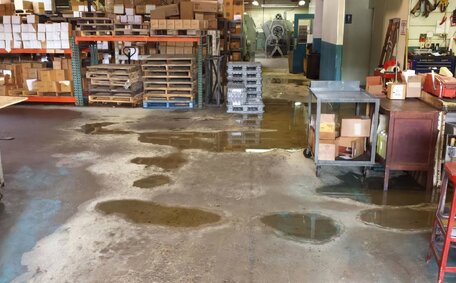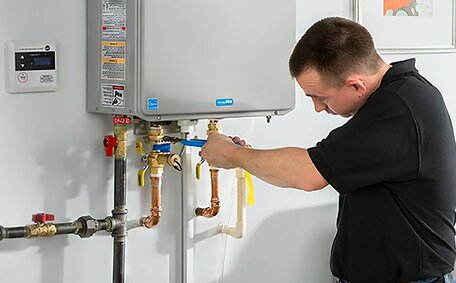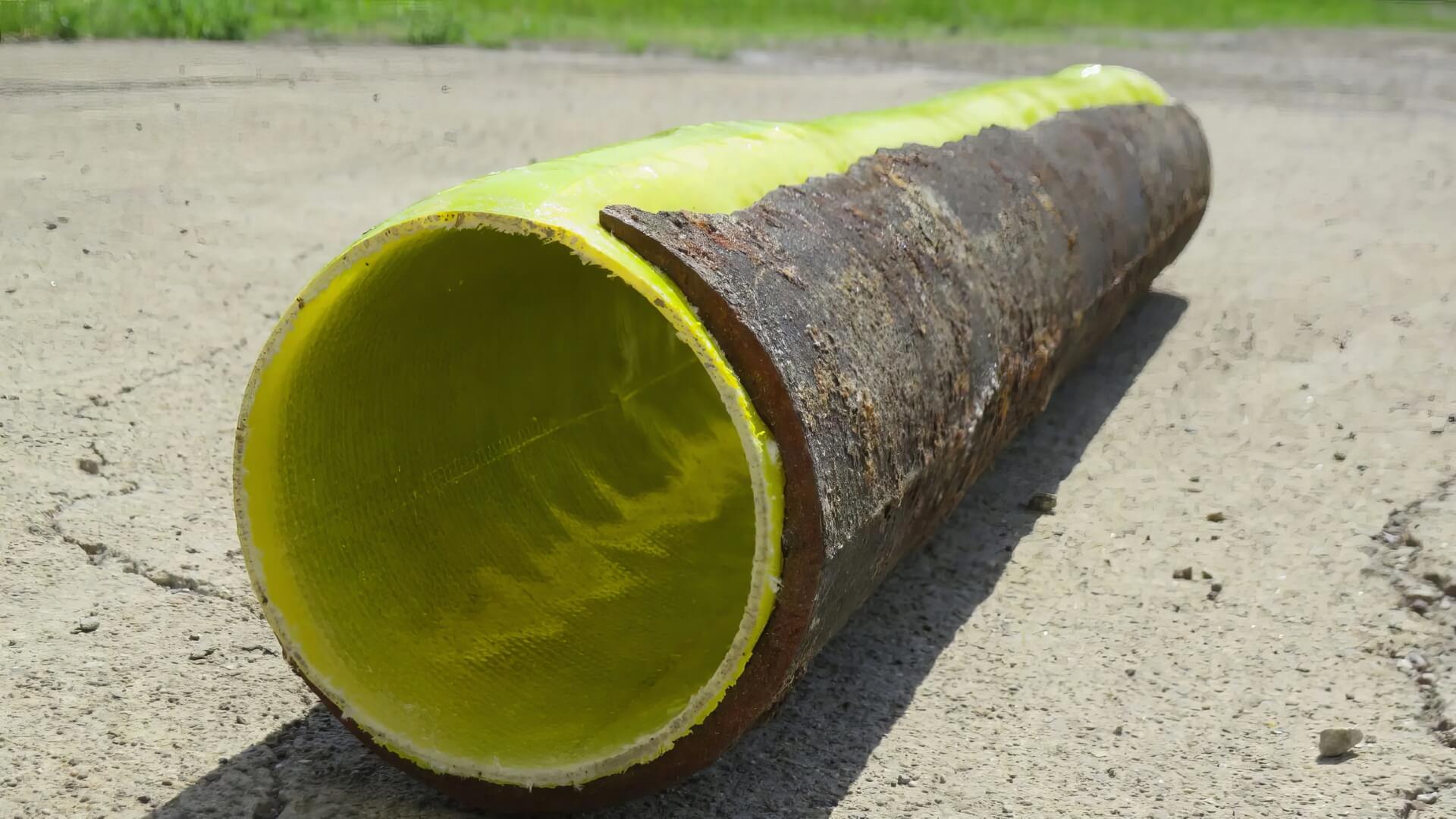
How To Fix Water Heater Issues
Can’t get hot water from your water heater? Try troubleshooting by checking the power supply, thermostat, heating elements and more. Call a pro plumber for repairs.
Read MoreA basic gas fitting and installation typically takes 1-2 days from start to finish when performed by licenced professionals. This assumes the location your gas line is relatively straightforward with no major obstacles, and includes:
For a small home or area under 50 feet, if you need gas line installation it may only take a full day. More complex jobs with longer underground runs can extend to 2-3 days. Factors like concrete removal or replacement, which much does cost more and impacts the overall budget, difficult access, or coordination with utility crews can also extend the timeline.
While it may seem doable to perform gas line installation yourself, we strongly advise homeowners to engage licensed gas fitters to meet compliance with codes and safety standards.
Attempting to connect your gas connection without expertise and permits is incredibly risky. Our experience ensures the process of does gas line installation is performed meticulously, upholding the highest safety and efficiency across the region.
Several key factors can influence how long a gas line installation takes:
While most gas line installations typically take 1-3 days, long does take install can be extended by having an underground leak, concrete to break through or challenges getting city permits could make the duration longer, highlighting unforeseen issues. Envisioning our clients content, we offer premium-quality execution of we offer your natural gas connection installation swiftly while maintaining stringent safety protocols.
Installing or modifying gas lines, our licenced professionals can install, requires obtaining permits and passing inspections from local authorities before, during, and after the job. This coordination for connection your natural gas installations operators is crucial for safety but can impact timelines.
After your initial site evaluation, our licensed gas fitter can adeptly liaise with your gas provider and manage the connected your gas connection fee with city building and planning departments. Paperwork essentials you’ll need to compile for a thorough preparation include:
Considerations like how long does permit processing take are important; typically it’s 2-7 business days, but detailed reviews can extend to 3 weeks. We follow up frequently to help expedite approval.
With permits approved for your gas piping, our expertise can help ensure at least three inspections occur:
Our technicians we can help to ensure inspections are aligned with your timeline and work schedules. But there no predicting inspector availability, which can sporadically cause delays of a day or more, especially in the case of a new connection. We make sure gas to clearly articulate timelines so there are no surprises.
While extra administrative steps are involved, complying with gas codes, critical for any new home, keeps your family safe. Our experienced technicians can complete installations and swiftly adjust electricity gas systems and address every connection request to ensure inspections are completed on time, minimising permit delays.
To make sure natural gas many lines are integrated flawlessly, coordination with local gas utility companies is imperative, and we are here to streamline this process. We’ll submit dig tickets detailing the extent of underground work so crews can mark existing utility lines on your property. This avoids dangerous and costly errors, ensuring lines installed make your property safe for natural gas use.
If you need to get gas connected to main lines, the utility company is responsible for an on-site setup of the gas meter line your box. This involves inspection, pressure testing, and officially getting gas connected your to the gas distribution infrastructure. Timeframes vary pending their availability.
For new clients, your energy retailer will manage the account set up, ensuring your gas metre is accurately installed and ready for service. We can provide constant communication with all parties involved to forestall any schedule disruptions.
While bureaucratic elements like permitting and utility coordination your specific to your project can be frustrating, following these procedures prevents safety issues down the road. Our team liaises effectively with Australian gas networks and local authorities to reduce delays during your gas line installation.
Proper planning and how much connect gas preparations are crucial before installing gas lines to ensure the job is completed safely, legally and on schedule. Here are key steps we recommend before starting:
Our expertise in installing new gas systems can do wonders, guiding you through the preliminary steps ensuring that all is ready for a seamless installation upon our arrival. Don’t hesitate to lean on our experience handling all aspects of the job from start-to-finish according to industry best practises.
Hiring a professional gas plumber ensures your gas installation is completed with utmost safety, legality, and efficiency, answering all frequently asked questions along the way. Here’s what you can expect when Baulkham Hills Plumbing handles your gas project:
With thorough training, our experts ensure the installation can unfold smoothly and prevent potential gas leaks, always adhering to stringent industry best practices. We keep homeowners informed each step of the way what to expect and ensure the gas line connected is safe and secure. Rely on us to ensure your gas line is connected punctually and within budget.
When installing underground gas lines, strict depth and safety protocols must be followed to ensure durability and prevent hazardous leaks. Following Australian Standard AS 5601, which is why gas pipes must be immersed at depths between 15 to 24 inches (400-600mm) beneath the surface.
This safeguards your home’s new gas infrastructure from:
Other key safety procedures our licenced gas fitters follow for underground installs include:
We offer exhaustive measures to guarantee that underground gas lines are immersed deep enough to prevent safety incidents or disruptions from surface undertakings. This gives you peace of mind in your home knowing their gas supply is secure for decades to come. Strictly following gas codes during the installation process ensures ideal system performance and reliability long-term.
Once your new gas line is outfitted, there are pivotal measures to secure the gas service for your property:
It’s crucial to get your gas installation needs addressed, so get in touch with Baulkham Hills Plumbing by calling 1300 349 338 if you suspect a rotten egg smell indicating a gas leak. We offer gas services with round-the-clock emergency response to your house in your area. Our qualified technicians can diagnose issues, perform expert installation repair on gas systems, and restore functionality swiftly, so don’t hesitate to check out our services.
Investing in professional installation and maintaining your gas infrastructure ensures maximum safety and efficiency for your home business. Contact our friendly team at any time for further assistance protecting your investment or leveraging natural gas in new projects around the home or business.
Can’t get hot water from your water heater? Try troubleshooting by checking the power supply, thermostat, heating elements and more. Call a pro plumber for repairs.
Read MoreCloudy or milky hot water coming from your taps is generally harmless and caused by trapped air bubbles in the water. Simply running the tap for a little while will usually clear up the water. If the cloudiness persists, it could be caused by sediment buildup or issues with your pipes.
Read MorePipe relining involves inserting a tube inside damaged pipes to repair cracks and leaks without digging. This trenchless method may allow pipes and plumbing fixtures to be relocated during bathroom renovations. Contact our expert plumbers to understand if pipe relining can reposition your pipes and fixtures.
Read MoreBaulkham Hills, 2153 NSW
We will call back as soon as possible.




